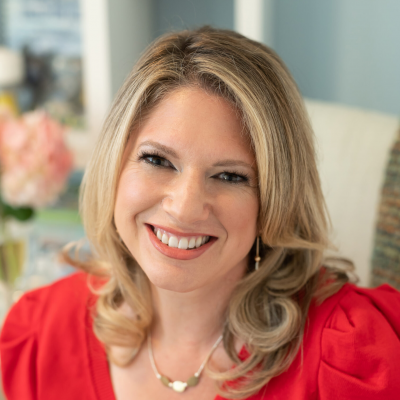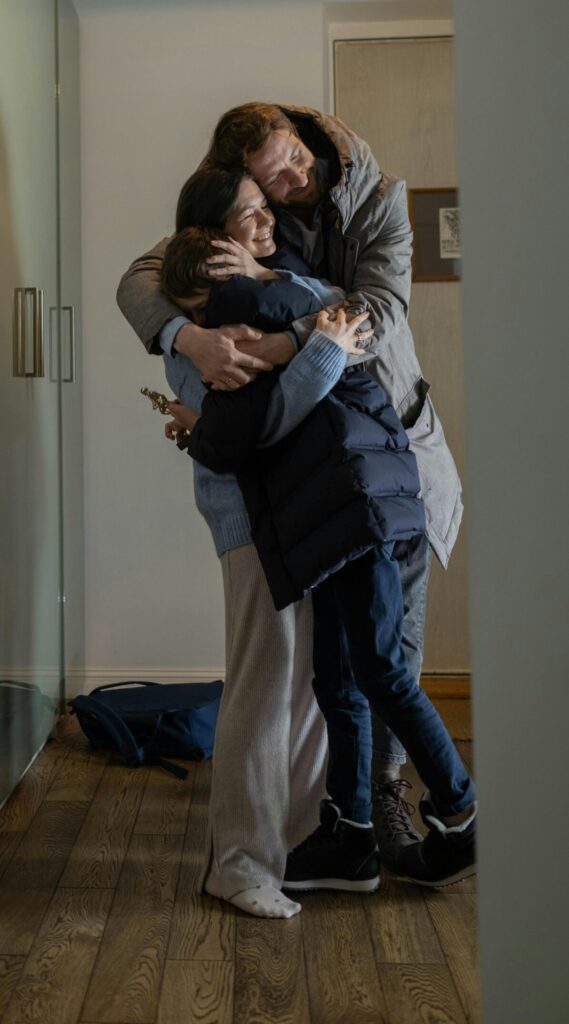How to Talk to Kids About Anything
Failure, drugs, death, sex, divorce, porn, adoption – no matter how tough the question, here are tips and scripts to help you answer
May 1, 2024
As part of NYC-Parents in Action’s Lifelines Webinar Series, NYC-PIA’s Dr. Laurie Freeman spoke with Dr Robyn Silverman, renowned child/teen development specialist and author of How to Talk to Kids about Anything, about how to connect and support your child when addressing difficult topics, no matter how tough the question.
Dr. Robyn Silverman believes that young people are assets to be developed, not deficits to be managed. With that ideology in mind, she spends much of her time speaking, writing and podcasting about the best ways that parents, educators and mentors can help children and teens thrive. Battling bullying? Dealing with divorce? Need to have a conversation about responsibility, respect, focus or confidence? Dr. Robyn will take you from the beginning to end so that you feel ready, and your children feel understood.
Speaker:
Dr. Robyn Silverman, the “Conversation Doc,” is a child and teen development specialist and author of the bestselling book, How to Talk to Kids About Anything, as well as the host of the popular podcast of the same name. She is a cofounder of the Powerful Words Character System, which gives educators the talking points they need to help children become kind, responsible citizens of the world.
Moderator:
Dr. Laurie Freeman is a licensed psychologist, certified Emotionally Focused Couples Therapist/Supervisor (EFT). She has 30 years of experience in private practice helping individuals and couples with relationships, anxiety, parenting and navigating life stages.

Dr. Robyn Silverman
Dr. Laurie Freeman: How did you come to your work in this area?
Dr. Robyn Silverman: Like so many things, through personal experience. In 5th grade, I was ostracized – it was a tough time. I remember aides at recess, watching, day after day, saying nothing. Inside the school it wasn’t much better. There was little training available to help adults help kids. One day the teacher sent me to the library alone so she could talk to the class about “the problem” (me). That just made me feel more ostracized. When I got back, she asked me, “What do you want to say?” I had no idea what to say! I was just the kid.
This shows that adults need to have words to address tough topics. In my situation, the perpetrator (not the organizer, but the one who fell under pressure) would refer to me as her best friend on weekends but wouldn’t talk to me at all during the week. Adults should have told me, “This is not a real friend, this is a toxic friendship.” Kids need support. The more we talk to them the better they can face challenges.
LF: It sounds like no adults knew what to say to help. This generation has resources, like your book or podcast, to help parents help their kids.
 RS: Yes, we do. Previous generations just said “pull yourself up by the bootstraps.” Am I stronger for it? Yes in some ways. Am I weaker for it? Yes, in some ways. But we now know we need to have these tough conversations. You, the trusted source, can help your child make good choices for well-being, and for emotional and mental health.
RS: Yes, we do. Previous generations just said “pull yourself up by the bootstraps.” Am I stronger for it? Yes in some ways. Am I weaker for it? Yes, in some ways. But we now know we need to have these tough conversations. You, the trusted source, can help your child make good choices for well-being, and for emotional and mental health.
LF: If a parent knows their child is having a hard time, say, a girl in Middle School (nearly 100% of them face this) what might the parent say to help?
RS: My daughter had something similar happen to her in 5th grade. It was super triggering! I wanted to just say, “Move on! This isn’t your friend!” Instead, I had the conversation that I wish someone had had with me when I was young.
Ask your child: “Tell me the top three qualities you think define a friend.” Let’s say the answer is: kind, loyal, funny. Then, have them list the top people they spend time with, and consider, which of those qualities do these people have? Go through all, identifying which have these qualities and see what happens when you get to the problem person. My daughter was able to say, well, she’s funny but she’s not loyal and she’s not kind.
Kids can then see, by their own definition, this person doesn’t fit their values, and the realization comes from them. Your child realizes, “I spend time with her, but she’s really not a friend.” If you just dictate to kids, they’ll resist, but if you guide them to their own realization, it becomes clear. They wind up with ownership, and see that they can make choices. Coming to it themselves, they feel savvy.
LF: Is this applicable to dating? In the case of a partner treating your child badly?
RS: I really like looking at the dating situation this same way. Statistics show that 70% of kids actually want to talk to parents about dating. You are their safe place. Talk about what they want in a person or a relationship, how they want to feel in a relationship. Help them understand that movies and social media may give a very slanted view of what dating or relationships should be.
Ask powerful questions. Powerful questions are short and punchy and take you out of the role of lecturer and into the role of listener. “Tell me more about this person, and how you feel when you’re with him. Does he do anything that makes you feel good? Uncomfortable? How do your friends feel about him?” Be the listener, so you can hear their words.
LF: So, rather than leading with judgment, lead with curiosity. Then use points they make, so you don’t have to make pronouncements.
RS: Yes, and even if your kid isn’t dating you can have conversations in advance. I call them “pre-talks.” Brainstorm about what kinds of people they love being around. You can offer your favorites and also elicit theirs. You can still provide your view by highlighting what they’ve said, then segueing to offering your perspective, but do it without pushing.
LF: You can give opinions as part of a dialog but not make pronouncements.
RS: Yes. I’d add that you can tell your own stories. Obviously not gory details about every situation, but you can recount some experiences if you do it in an age-appropriate way. You can even say, I wish I could go back to that younger me and warn myself against mistakes. Your child might then agree and say, yeah you shouldn’t have done that – this lets him be the mature one. Avoid gory details, but say, I once put myself in a bad situation and was forced into things I might not have wanted. Then ask, what would you do differently? What advice would YOU give in that situation? Let your child be the sage.
Control your own reactivity. It’s natural to be upset, but rein it in.
Encourage dialogue by giving kids space to express their own thoughts
without your reaction.
LF: A parent question: how do you go about saying “I was married before,” or that both parents were married before?
RS: I am all about honesty. If we wait until they’re 16 or 17 to tell the stories they’ll feel lied to. We adopted our kids and I started talking about it from the time they were infants – for my own good! I had time to become very fluent with it. And my kids cannot remember a time they didn’t hear about it. But if you never did this? Then, even if late, start the tough topics now – choose a quiet comfortable place, at home or wherever feels good. You can say, I’ve been wanting to tell you about this but it felt awkward. (If you feel awkward, SAY SO. They will understand.) Bring up the topic, “I was married before.” Explain that sometimes we marry someone and it doesn’t work out. Then say, I’m open for questions – do you have any?
Even if nothing comes up until months later, it will evolve. If you frequently revisit the topic, what a gift to give your child, that you talk about it whenever it comes up and you do it often enough that it becomes part of the fabric of your relationship. And it becomes part of who you are as a parent, one who talks about tough things.
LF: What about talking about sex?
 RS: Our parents mostly did not discuss sex, but did a one-time thing, where they sit you down for “the big talk.” In my situation it happened accidentally. I’d told them they were adopted (“Mommy’s baby-making machine didn’t work so I went to the doctor for help.”) One day my daughter said, when I want to get pregnant I’ll go to the doctor. I told her there’s another way people get pregnant. She knew about the sperm and egg, but asked, how does the baby get in there?
RS: Our parents mostly did not discuss sex, but did a one-time thing, where they sit you down for “the big talk.” In my situation it happened accidentally. I’d told them they were adopted (“Mommy’s baby-making machine didn’t work so I went to the doctor for help.”) One day my daughter said, when I want to get pregnant I’ll go to the doctor. I told her there’s another way people get pregnant. She knew about the sperm and egg, but asked, how does the baby get in there?
I felt awkward, but realized you’ve just got to say the words. Use these words from the very start – name their body parts. Then you can say, we’ve talked about your vagina or your penis, and now, here’s what happens. Tell them clearly, the penis goes into the vagina and they fit together like puzzle pieces. They’ll have questions. Answer honestly.
I know, some of you are thinking, I don’t want to say those words, but if you don’t, they’ll look it up online! Do you really want some influencer telling them this? That info could be wrong! YOU are their safe place. YOU have their best interests in mind. This conversation doesn’t take long, and it opens up a whole world of dialog you might not expect. After I explained, she asked does it hurt? and I was able to explain that if you really love each other and both 100% want it, it can be wonderful. But if both do NOT 100% want it and if one person is there for wrong reasons, it can hurt your feelings and hurt your body. My daughter was able to see that when she is grown up and ready for it, it should be with someone who really loves her.
LF: Well, that’s a story that went well!
RS: They don’t always, right? And it should be not just one conversation, but many.
LF: So now that we’ve introduced sex, how do we talk to our kids about porn? They see images at a younger age than we’d like. What if a parent finds out the child has been watching porn? Or can we catch it before it happens?
RS: This feels like something you’d NOT want to talk to kids about because it’s not FOR kids, but it’s been shown kids as young as 6 or 7 have been exposed to porn. With my kids, I said, “I read a study that said kids by age 11 have seen porn – have you?” (They were 11 and 12.) My son said, “Yes, but I didn’t tell you because I thought I’d get in trouble.” Tell them, “You’ll never get in trouble if you come to me to ask for help.” My daughter said, “Yes I was with a neighbor and something came up on the computer and we ran away but I didn’t tell you because I thought I’d get in trouble!”
Once you’ve assured them they will NOT get in trouble for telling you about mistakes or uncomfortable things they encounter, you can offer facts about porn and explain “why I don’t want you watching it.” Say that, like drugs, it has immense impact on our brains, especially developing brains. It goes right to the primitive part, and can make you want more and more and more of it even though it makes you feel terrible inside. It can change the way you feel about relationships, about sex, about how you see yourself – like believing men must be powerful and take charge, or women need to be available at all times and are objects to be used. Or that we’re meant to do this even with people we’ve never met and have no relationships with.
Ask a powerful question: how did it make them feel to see it? If it feels awkward, admit that, and tell them, “You can talk to me about this no matter how awkward it feels – now, later, or months from now. You can say anything you want to me, or ask me questions.”
If you ask, and they have NOT seen porn, you can ask if they know what it is. Then you can warn them, and say that porn is made to look like sex but it’s not what sex is really like. They’re not the same.
Help your child make decisions about risky topics
from a place of knowledge and wisdom.
LF: What about talking about marijuana and alcohol?
RS: The added piece here is the pressure that kids get from other kids. Ask, what are your friends saying about this? Kids these days may have a very different view from yours, but keep the conversation going anyway. If you want your child to come to you to talk about these tough topics, then remember – you CANNOT say, “Now you’re in trouble!” That could make it the last time they come to you. If they call you after drinking and ask you to pick them up, don’t immediately say “Now you’re in trouble!” even if you’re furious.
My daughter asked me: “Hypothetically, if I called you from a party, drunk, would I get in trouble?” I said, listen, I’m not in favor of underage drinking because it impairs your choice-making, it’s bad for your developing brain and body and therefore more likely to lead to addiction. But I also want you to know, if you call me and say you’re at a party with drinking and drugs, and have made a mistake, and you need me to get you – well, even if it’s 3:00 am I’m going to come, and you won’t be in trouble. Next day we will discuss it – I’ll want to know how you got into the situation, and we’ll talk about how to avoid it in the future. But I want you to always come to me.
LF: The importance of being emotionally safe is key. We’ve had a question about online betting?
 RS: It’s like a new drug – and the internet is part of it. You would notice if a kid went into a casino and could make him leave, but online, they can be there without adults knowing. Explain that kids are being duped by the adults who run these sites, to get their money. Ask, if a friend says you can make a lot of money betting online, what do you think the opposite result might be? Prepare them by giving them information, so if they encounter this, they’re savvy.
RS: It’s like a new drug – and the internet is part of it. You would notice if a kid went into a casino and could make him leave, but online, they can be there without adults knowing. Explain that kids are being duped by the adults who run these sites, to get their money. Ask, if a friend says you can make a lot of money betting online, what do you think the opposite result might be? Prepare them by giving them information, so if they encounter this, they’re savvy.
LF: Help them be wiser, and put mom in the position of someone who is arming them against dangers. Final question: We’re in a polarizing world – how can you address this?
RS: With any topic that feels polarizing, you may have a strong feeling. So, ask just a temperature question: Do you know about “this thing” that’s happening in the world? and start with that information. Even if you have your own personal values, try to present a balanced view. Otherwise, you’re just re-creating polarization. Make sure you’re educated on several views, and then say, this is how I feel. You may also offer how a relative (with a different view) feels. Discuss how you reached your own view. If they bring a different view, ask them how they reached theirs; say, “Tell me more.” Try to find out if they’re receiving misinformation.
LF: It’s not just about horrors in the world, but about ways to be respectful of other opinions.
RS: Yes, it teaches kids how to communicate, and not just on that topic. Don’t just say, this is how I feel. Also say, tell me more about how YOU feel, and why.
LF: Thank you for this discussion – I’d love to continue it!
RS: We’ll always want to continue the conversation, because it’s never going to be just one talk!
